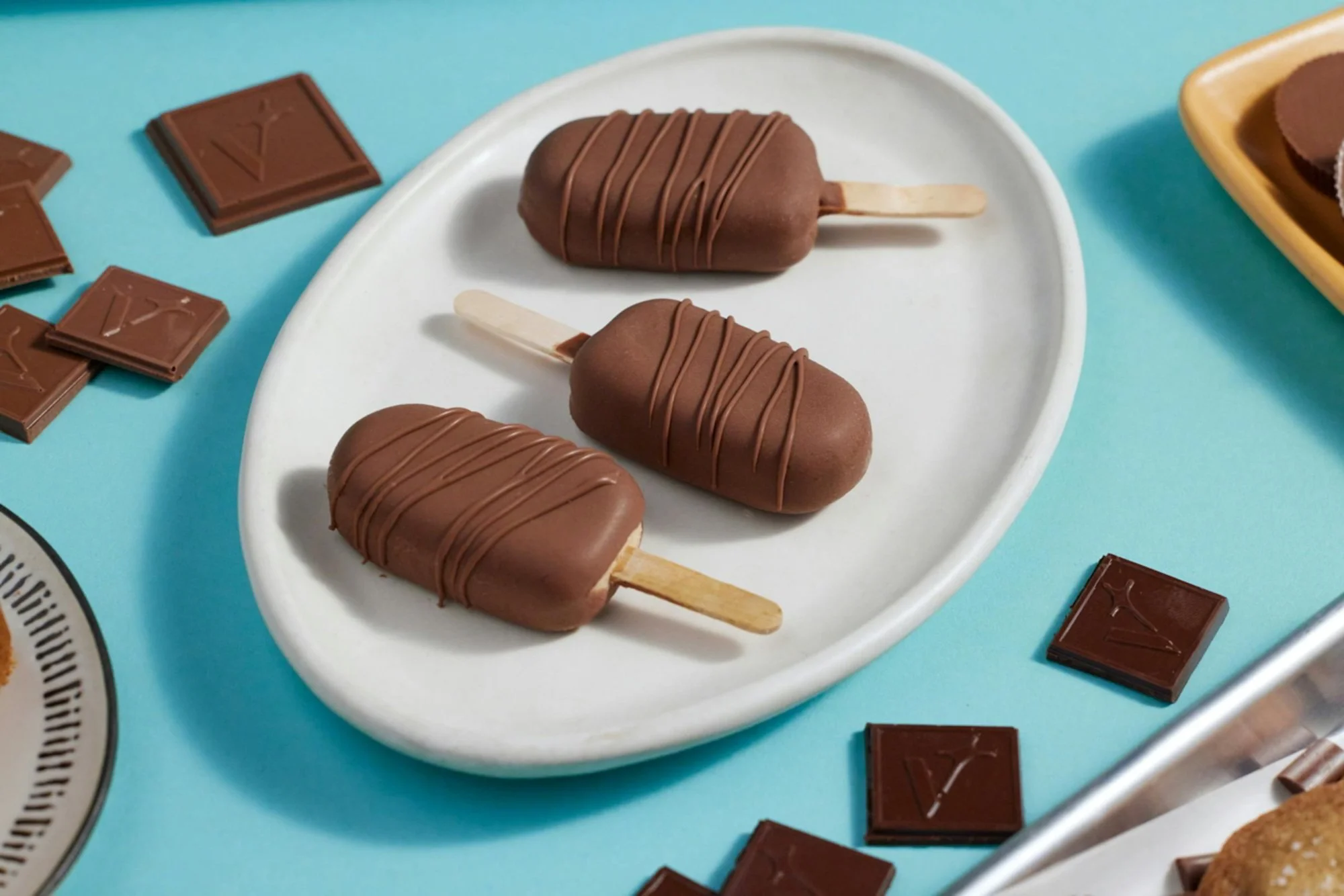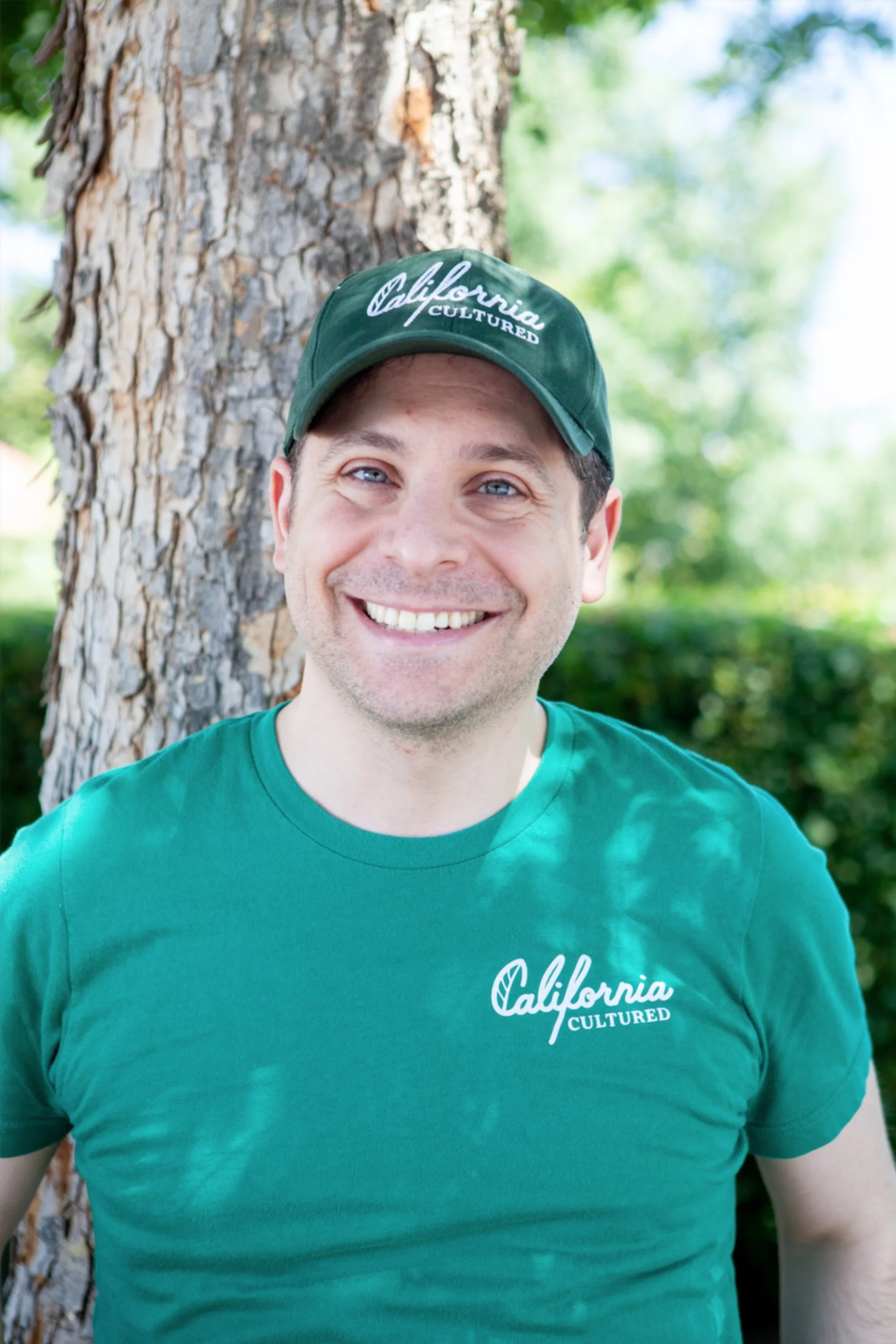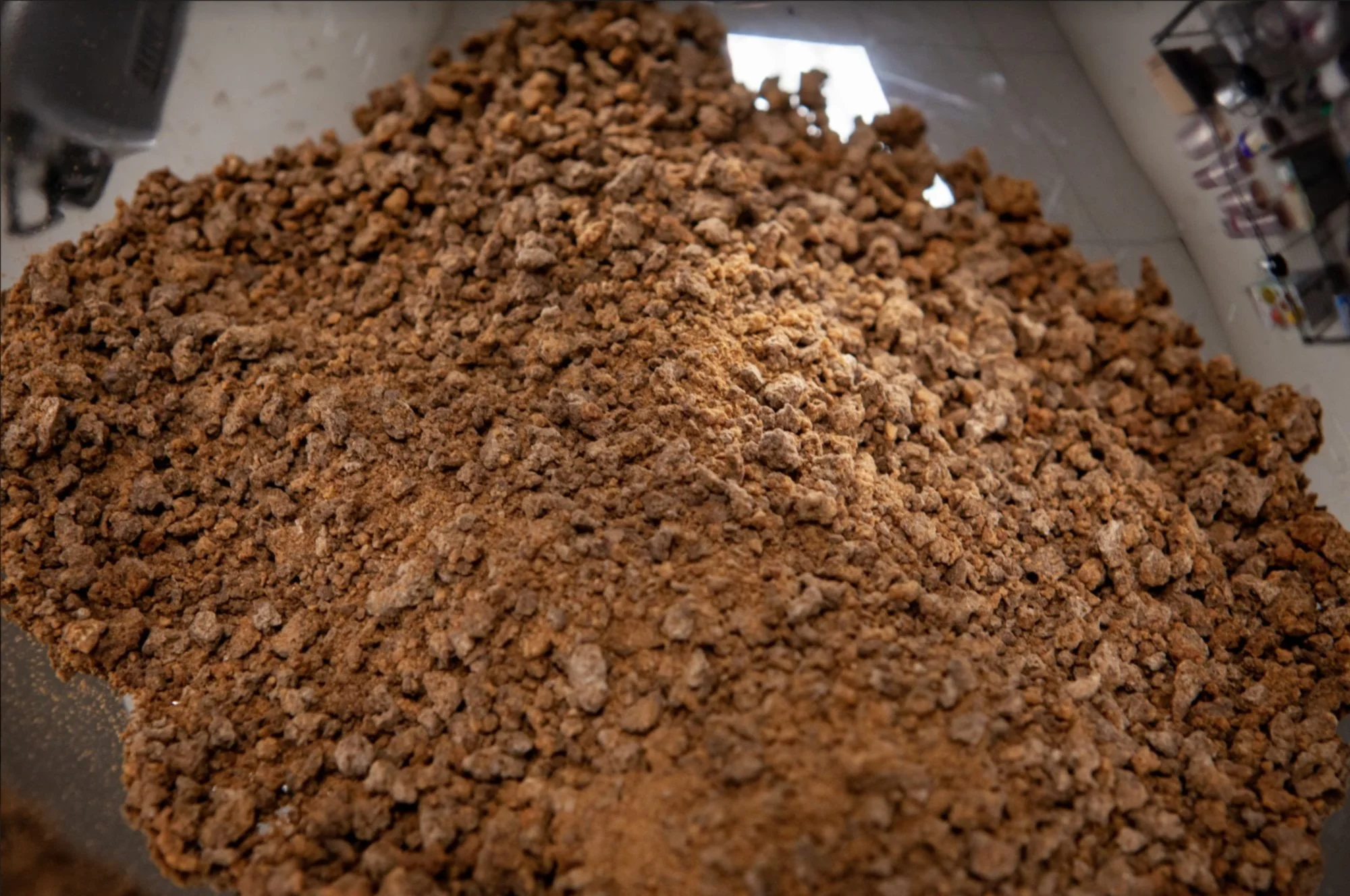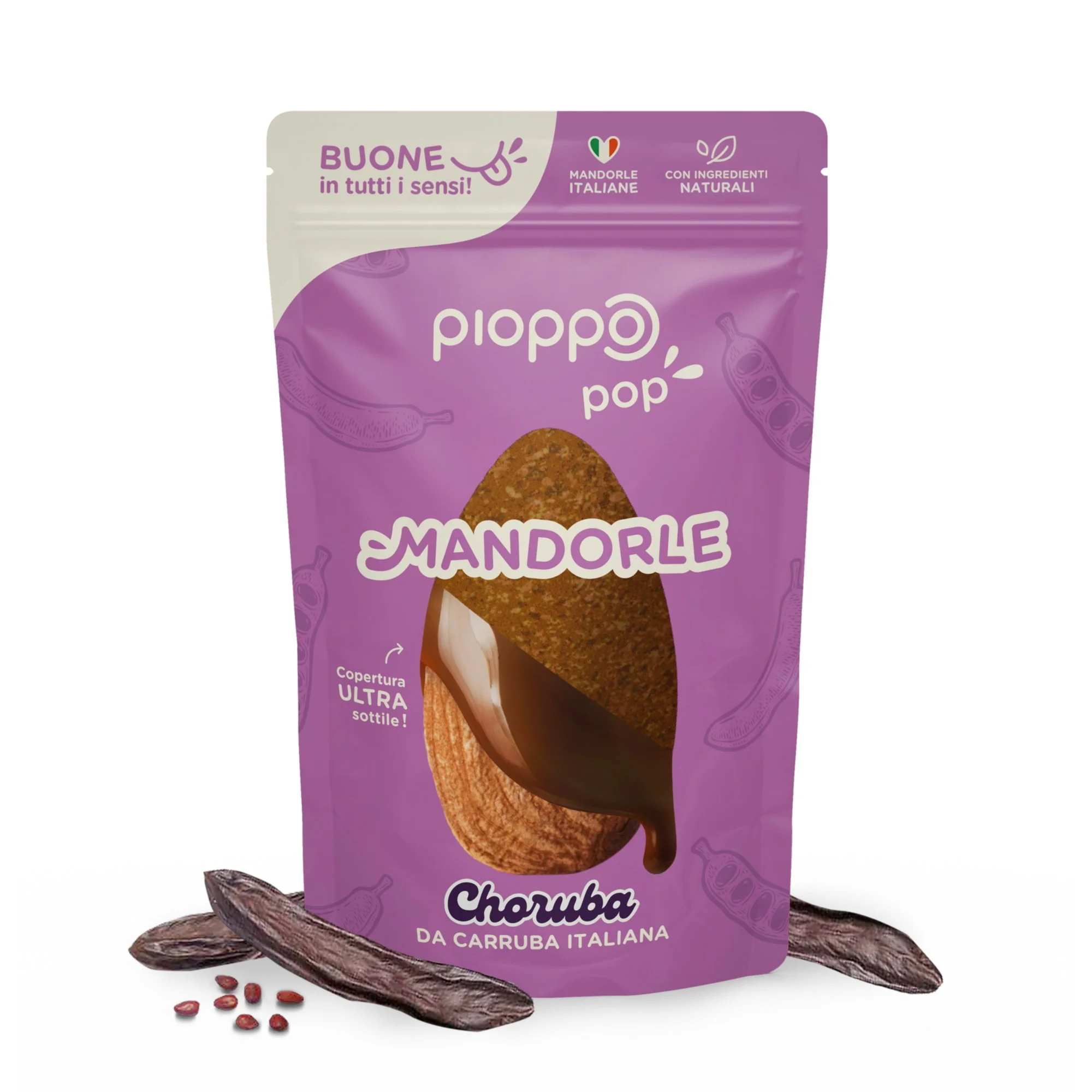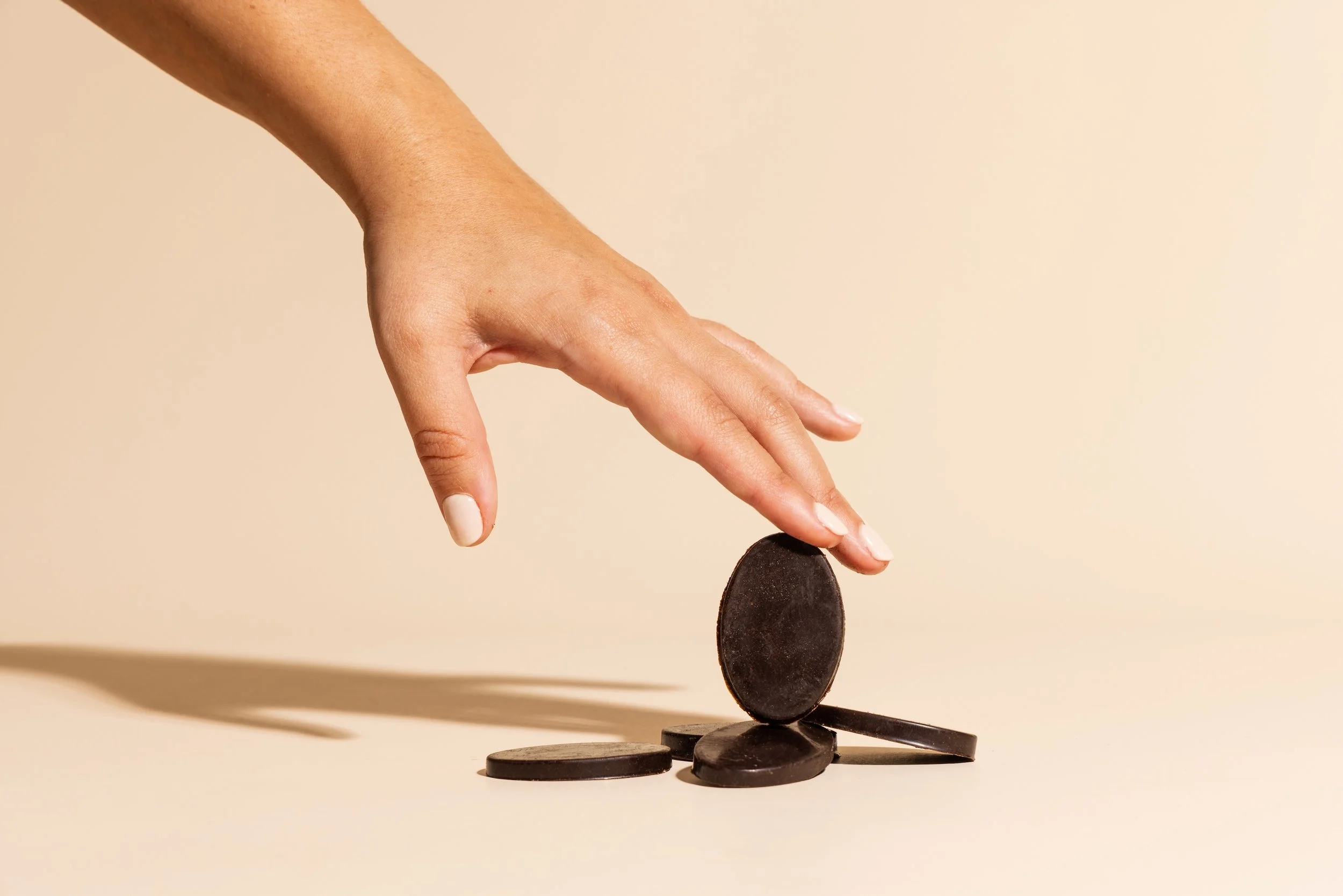Chocolate’s Plan B is on the Way: Cacao-Free
ChoViva bar from Planet A Foods photo credit Daniel Schvarcz
For years now, innovative and sustainable-minded entrepreneurs have been preparing for the end of chocolate. They hope that end never arrives, but they want to be ready with versatile and satisfying chocolate alternatives that don’t rely on cacao beans to make the confections, desserts, and treats that the world loves and demands. The numerous pressures negatively impacting the cacao industry—climate change, carbon miles, shipping costs, ethical labor issues, aging cacao plantations, deforestation due to palm oil cultivation, heavy metal contamination, and now tariffs—have caused sky-high prices, supply shortages, and serious sustainability issues. The future outlook is uncertain at best, making it the ideal time for a Plan B for chocolate.
New global food-tech startups keenly aware of chocolate’s many troubles have been tapping into the power of science and food technology to create ingredients that taste, smell, and behave like chocolate. Some are fermenting and roasting seeds and beans from locally grown crops to replicate cacao’s flavor profile with fewer carbon emissions and less water use. Others cultivate cacao in labs and grow it cell-by-cell in sterile environments to produce actual cocoa in a whole new way. And, yes, even carob is back in the picture, but in updated formats.
These companies are introducing us to cacao-free products that they intend will meet our unquenchable desire for chocolate sensory experiences while stabilizing prices, increasing supply choices, reducing environmental impacts, and ensuring chocolate’s future, even if they serve as a complement to the existing cacao industry in the future. They are already garnering substantial financial support from major chocolate industry players—Mondelez, Lindt, Barry Callebaut, Cargill, Meiji—which is a positive sign for their continued growth and future adoption by the industry and today’s chocolate lover.
Cocoa-free Recipes Using Sustainable Crops
Grape seeds
Sunflower seeds
Fava beans
Chocolate free confections from Voyage Foods
Voyage Foods
Voyage Foods in Oakland, CA, transforms grape seeds upcycled from the wine industry into its chocolate alternative base. It blends the roasted seeds with RSPO palm oil, shea kernel oil, cane sugar, sunflower protein flour, and natural flavors. Voyage currently sells the final product, which is vegan, gluten-free, non-GMO, and allergen-free, as chips or wafers to food manufacturers for use in baked goods, icings, glazes, and frozen desserts.
Before founding Voyage Foods in 2020, CEO Adam Maxwell noticed large investments in food tech companies focusing on foods with uncertain futures. In his view, the chocolate supply will not keep up with future demand. “Chocolate doesn’t grow on trees,” he explained. “It’s the product of a process.” His company analyzes the molecular composition of cacao, identifying the precursor molecules that are most responsible for chocolate’s sensory experience, then finds them in less expensive ingredients and processes them in the same way. “We can take other inputs and generate the flavors of chocolate,” he shared.
The company’s broader mission is to provide allergen-free alternatives to favorite foods. It also produces peanut-free and hazelnut-free spreads, and is developing bean-free coffee. Voyage has a partnership with ingredient giant Cargill and is building a factory in Ohio to scale its products. Europe is a future market goal.
Pilsen Factory Planet A Foods photo credit Planet A Foods
Planet A Foods
Planet A Foods, based in Germany, has unlocked the keys to fermenting and roasting sunflower seeds to achieve a chocolate-like taste and flavor. Sunflower seeds are abundant in Europe and considered by Planet A as future-proof and resilient. Using this local ingredient instead of cacao from Africa reduces carbon emissions by 90%. The company launched its ingredient under the brand name ChoViva to food makers like Lindt and Aldi across Germany, France, and the UK. It’s now found in over 40 retail products, including cookies, peanut butter cups, and granola.
Nukoko cacao free confections
Nukoko
UK’s Nukoko uses domestic fava beans for its chocolate alternative that is in development. Fava beans share a seed-storage protein called vicilin with cacao beans. When they are fermented and roasted, they reproduce chocolate’s snap, shine, and flavor, the company believes. Nukoko’s website makes its motivation clear: “We love chocolate but the industry is unsustainable.” It also points to climate change creating a “looming billion-dollar deficit in cocoa supply.” It hopes to release its current product in late 2025.
Lab Based Chocolate Pioneers
California Cultured
Celleste Bio
Kokomodo
Food Brewer
Alan Perlstein, CEO of CA Cultured
California Cultured
California Cultured, based in West Sacramento, CA, is also out to solve issues in the chocolate industry by using cell-cultivation technology, more commonly used for creating meat, fish, and poultry from cells. Co-founder and CEO Alan Perlstein speaks of the “hundreds of problems” in the chocolate industry. “Cell culture could solve this problem,” he stated in an interview. “It’s one way to future-proof the chocolate experience.”
His startup, and others using the same technology, select promising cells from cacao plants, culture them in vitro, and then feed them to grow and multiply in a nutrient-rich solution inside a sterile container. The cells multiply, and in less than a week, they are harvested and dried into cocoa powder that is fermented, roasted, and processed in traditional chocolate fashion.
Perlstein’s startup has a particular interest in boosting the nutrient density of its chocolate by increasing flavonoids, which offer antioxidant and other functional benefits. It’s co-developing products in partnership with Japan’s largest chocolate company, Meiji, which is also concerned about the volatile cacao market and seeking solutions for a resilient chocolate supply. The company has applied for GRAS (Generally Recognized as Safe) status in the US, which Perlstein expects to receive within about a year. Meanwhile, coffee is its next focus.
Dehydrated cell cacao nibs from CA Cultured
Celleste Bio, Kokomodo, Food Brewer
Other companies developing cell-based chocolate are Israel’s Celleste Bio, backed by Mondelez, and Kokomodo, backed by Pluri, an Israeli health tech company moving into food tech. Both startups are members of the 2025 cohort of the European Institute of Innovation & Technology’s RisingFoodStars program, which supports the scaling of promising agrifood tech startups. Switzerland’s Lindt & Sprüngli has also invested in cell-based chocolate maker Food Brewer.
Updated Carob Returns
Carob is also playing a new starring role in chocolate alternatives, especially in Europe, where carob is grown in Portugal, Italy, and Spain. Carob cultivation uses 10% less water than cacao and generates 80% less carbon emissions, according to the companies focused on sustainable, yet great-tasting chocolate alts. These companies are winning innovation awards and gaining financial support as they aim to expand future choices.
Choruba covered almonds
Foreverland
Foreverland is a food-tech startup in Puglia, Italy, that uses Italian-grown carob to create an alternative to chocolate for baked goods and confections. It developed an innovative fermentation and roasting process to yield more chocolate-like sensory elements from carob while simultaneously upcycling parts of the carob fruit that are typically wasted. Its product is called Choruba and has been used in panettone and confections, including an Easter Egg from Dulciar and coated almonds from Pioppo. The company won the inaugural FoodTech World Cup at the HackSummit in Lausanne in 2025.
Win-Win
London-based Win-Win also uses carob along with barley, sunflower seed flour, and tiger nuts in its “Choc” product, substituting shea butter for cocoa butter. It makes a dark and vegan milk chocolate alternatives that are used in products at Toad Bakery and the sustainable restaurant Apricity in London, so far. As a sign of its progress, it won the best Innovation of the Year and New Ingredient Launch from a Startup Company in March 2025 at the International Food & Drink Event Manufacturing Ingredients Awards.
Compound Chocolate Medallion
Compound Foods
Compound Foods, in San Francisco, CA, analyzes the molecular structure of lower-cost and abundant plant ingredients such as carob, mesquite, and spent grains to reverse engineer a chocolate alternative that has similar sensory and functional qualities as conventional chocolate. Like Foreverland and Win-Win, it upcycles plant waste to create a more valuable and resilient supply chain, using the power of data analytics and food technology to rebuild chocolate. It also has a coffee alternative.
An Encouraging Future
The chocolate alternative industry is in its early days, but the breadth of products and approaches, along with the support of the chocolate and innovation industries, are encouraging signs. These startups are motivated by a mission to solve numerous problems at once, those nagging at the chocolate industry and the larger environmental food supply impacts. As Adam Maxwell of Voyage Foods pointed out, “We wouldn’t exist as a company if demand wasn’t going to outstrip supply. These alternatives will have a place in the market.” Consider these alternatives as insurance and ways to preserve the chocolate experience for future generations.


